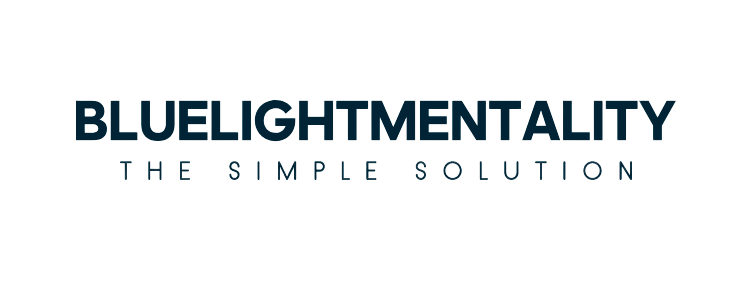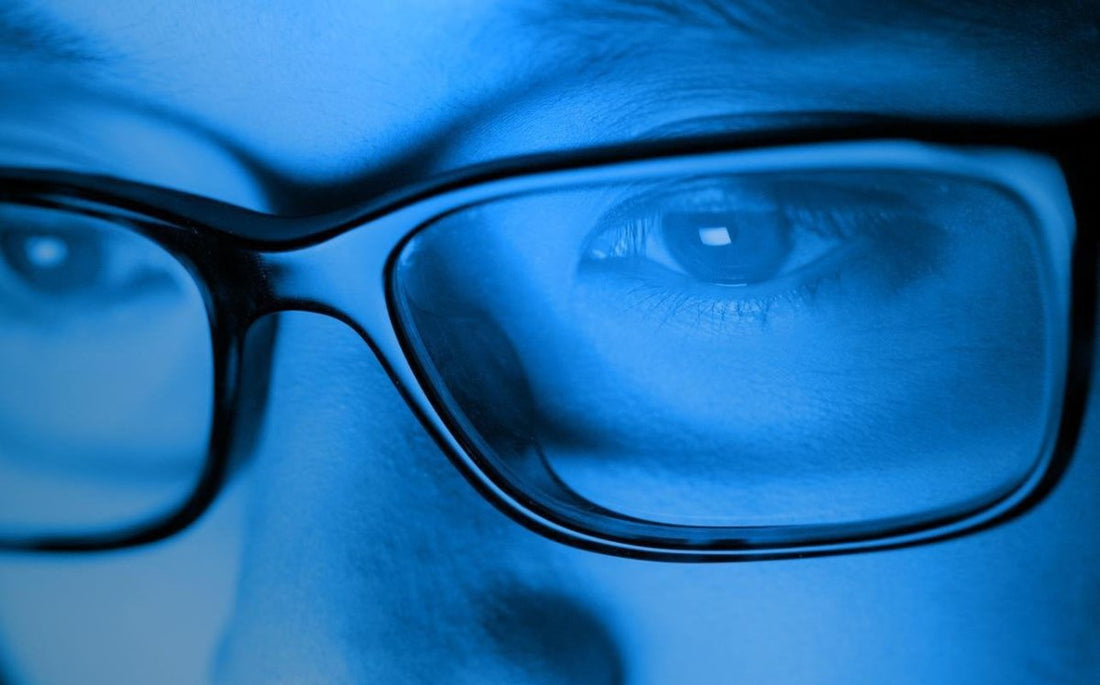It's been said that blue light is the new cigarette. We all know the dangers of smoking, but what about blue light? Are there any dangers to working in front of a computer screen all day long? Is it harmful to our eyes? And what can we do to protect ourselves from the negative effects of blue light? This post will take a closer look at the advantages and disadvantages of blue light and offer some tips for reducing its impact on our health. Stay tuned!
Lets understand blue light a little more.
The largest source of blue light is sunlight. In addition, there are many other sources:
- Fluorescent light
- CFL (compact fluorescent light) bulbs
- LED light
- Flat screen LED televisions
- Computer monitors, smart phones, and tablet screens
Blue light exposure you receive from screens is small compared to the amount of exposure from the sun. And yet, there is concern over the long-term effects of screen exposure because of the close proximity of the screens and the length of time spent looking at them.
The eye is not very good at blocking blue light.
Anterior structures of the adult human eye (the cornea and lens) are very effective at blocking UV rays from reaching the light-sensitive retina at the back of the eyeball. In fact, less than one percent of UV radiation from the sun reaches the retina, even if you aren't wearing sunglasses.
(Keep in mind, though, that sunglasses that block 100 percent of UV are essential to protect these and other parts of the eye from damage that could lead to cataracts, snow blindness, a pinguecula and/or pterygium, and even cancer.)
On the other hand, virtually all visible blue light passes through the cornea and lens and reaches the retina.
Blue light exposure may increase the risk of macular degeneration.
The fact that blue light penetrates all the way to the retina (the inner lining of the back of the eye) is important, because laboratory studies have shown that too much exposure to blue light can damage light-sensitive cells in the retina. This causes changes that resemble those of macular degeneration, which can lead to permanent vision loss.
Although more research is needed to determine how much natural and man-made blue light is "too much blue light" for the retina, many eye care providers are concerned that the added blue light exposure from computer screens, smartphones and other digital devices might increase a person's risk of macular degeneration later in life.
Blue light contributes to digital eye strain.
Because short-wavelength, high energy blue light scatters more easily than other visible light, it is not as easily focused. When you're looking at computer screens and other digital devices that emit significant amounts of blue light, this unfocused visual "noise" reduces contrast and can contribute to digital eye strain.
Research has shown that lenses that block blue light with wavelengths less than 450 nm (blue-violet light) increase contrast significantly.

Not all blue light is bad.
So, is all blue light bad for you? Why not block all blue light, all the time?
Bad idea. It's well documented that some blue light exposure is essential for good health. Research has shown that high-energy visible light boosts alertness, helps memory and cognitive function and elevates mood.
In fact, something called light therapy is used to treat seasonal affective disorder (SAD) — a type of depression that's related to changes in seasons, with symptoms usually beginning in the fall and continuing through winter. The light sources for this therapy emit bright white light that contains a significant amount of HEV blue light rays.
Also, blue light is very important in regulating circadian rhythm — the body's natural sleep/awake cycle. Exposure to blue light during daytime hours helps maintain a healthful circadian rhythm. But too much blue light late at night (reading a novel on a tablet computer or e-reader at bedtime, for example) can disrupt this cycle, potentially causing sleepless nights and daytime fatigue.
Blue light filters and protective eyewear
If you are using your phone constantly — especially if you use it primarily for texting, emailing and web browsing — a convenient way to reduce your blue light exposure is to use a blue light filter.
These filters are available for smartphones, tablets, and computer screens and prevent significant amounts of blue light emitted from these devices from reaching your eyes without affecting the visibility of the display. Some are made with thin tempered glass that also protects your device's screen from scratches.
As mentioned above, computer glasses also can be helpful to reduce blue light exposure from computers other digital devices. These special-purpose glasses are available without an optical prescription if you have no need for vision correction or if you routinely wear contact lenses to correct your eyesight. Or they can be specially prescribed to optimise your vision specifically for the distance from which you view your devices.
If you have presbyopia and routinely wear progressive lenses or bifocals, prescription computer glasses with single vision lenses give you the additional benefit of a much larger field of view for seeing your entire computer screen clearly. (Keep in mind, though, that this type of computer eyewear is exclusively for seeing objects within arm's length and cannot be worn for driving or other distance vision needs.)
So should I get blue light glasses?

Maybe. The average time on devices and in front of screens for adults is pushing 11 hours per day, and as such, our eyes are under a lot of digital light strain.
Even if you don’t need glasses to see clearly, it’s a good idea to always wear blue light blocking glasses when using digital devices and if you spend a lot of time looking at your phone at night, blue light glasses might help you.

